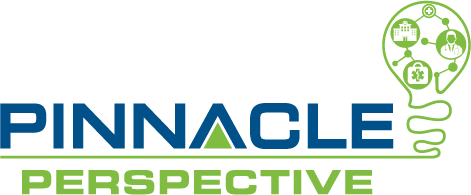
In many countries and regions of the world, access to valid, reliable, and comprehensive healthcare professional (“HCP”) compensation data can be a challenging task. Notwithstanding, in countries outside of the U.S. (“OUS”), determining FMV compensation for speakers, advisory board members, consultants, researchers, and others is crucial to maintaining compliance with global laws (e.g., FCPA, U.K. Bribery Act), country-specific laws (e.g., France, Portugal, others), and industry organizations (e.g., EFPIA, IFPMA, MedTech Europe, GMTA, etc.). Consequently, companies often utilize a range of informal sources of information to obtain what is erroneously represented as the FMV of HCP compensation. Typically, informal information sources include (i) asking compliance officers at other companies what they compensate HCPs in specific countries and/or (ii) obtaining surveys based on limited respondent pools of aggregated data that proport to provide the FMV of HCP compensation. The problem is that there is no way of knowing that the information provided by the surveyed companies ever met the Fair Market Value Standard in the first place. Tainted data going in equals tainted data going out.
Therefore, the use of informal sources of information to determine the FMV of HCP compensation in countries OUS becomes a question of risk tolerance. As indicated previously, there are numerous regulatory processes and industry codes throughout the world that apply to transfers of value (“TOV”) between life sciences manufacturers (“LSMs”) and HCPs. As a result, determining tolerance for risk is key to the development of a company’s global compliance plan. The foundation of a life sciences compliance programs involves answering a couple of preliminary questions, how much risk is acceptable? And, how defensible do you want your FMV approach to be? Once these questions are answered, then it’s time to consider appropriate options.
Notwithstanding, the calculation of accurate and defensible FMV compensation ranges for individual HCPs in various OUS countries based on levels of experience and expertise is not a trivial task. In addition to an understanding of risk tolerance and its impact on organizational decision-making, it should be noted there is substantially less risk associated with more formal FMV methodologies based on computationally derived FMV ranges. These analytically derived paradigms can also serve as the basis for valuing a range of transactions and arrangements (e.g., HCP compensation, product/service licensing arrangements, IP acquisitions/sales, and data transactions).
The following are five considerations when determining the FMV of HCP compensation in OUS countries.
1. Lack of Standardized Regulations and Guidelines Across Different Countries
Different countries have varying regulations, guidelines, and enforcement actions regarding compensation arrangements between LSMs and HCPs. Notwithstanding, compliance with each country’s laws/regulations, industry codes of conduct, and global anti-bribery and corruption laws is central to mitigating risk. Most notably, the common element through many of these laws/regulations is that transfers of value (i.e., TOVs) between LSMs and HCPs must be within FMV.
2. Consistency in the Application of a “Tiering” Methodology is Critical to Having a Defensible FMV Compensation Strategy
Consistency, in the application of a valid and reliable methodology to (i) “Tier” HCPs into homogenous categories based on experience and expertise and (ii) determine compliant FMV compensation rates for all HCP specialties in all countries. FMV compliance can be mandated and enforced through laws, regulations, and/or industry associations.
Objective criteria, utilized in a consistent manner, should form the basis of compliant valuation models (“Models”) and resulting tools (“Tools”). Decision criteria (“Attributes”) should be identified and used in a consistent and transparent manner to classify/stratify HCPs into compensation Tiers based on level of expertise and experience. Furthermore, consideration of key LSM stakeholder requirements for engaging HCPs will further support a low-risk approach to global compliance.
3. Using a Speaker Bureau to Engage and Manage HCPs DOES NOT Exonerate the LSM from Risk
Life sciences companies, not speaker bureaus, are responsible for ensuring that all TOVs between LSMs and HCPs are within FMV. Industry codes and country-specific laws/regulations will hold LSMs responsible for non-compliant HCP compensation arrangements (e.g., speakers, advisory board members, consultants, etc.) even if all contracting was handled by the speaker bureau. Speaker bureaus can provide many valuable services; however, it is the LSM’s responsibility to ensure that HCPs are compensated within FMV.
4. (Lack of) Availability of Benchmark Compensation Data
The FMV of HCP compensation is based on the country where the HCP resides. Factors like local currency strength/volatility, inflation rate, cost of labor, and overall economic development of the country all have a powerful influence on the determination FMV compensation. In OUS countries, however, there is a general lack of valid and reliable compensation data for each clinical/non-clinical specialty. Anecdotal data shared by LSMs can be obtained informally from other similar companies, providing the highest level of risk for non-compliance. However, a significantly less risky approach to compliance requires a more robust methodology based on computational adjustments to the available data.
5. Other Variables to Consider When Determining FMV
Factors such as cost of living changes, exchange rate fluctuations, and local economic conditions are key elements in a low-risk approach to HCP compensation. Other considerations include accessibility of healthcare services (rural/urban) as well as HCP payment methods/types (fee for service, salary, barter, public/private/hybrid insurance, etc.). Transparency laws/regulations should also be considered as they dictate the type of information needed for both documentation and public confidence. Consideration should also include each country’s cultural norms and expectations (e.g., acceptability of under the table payments) as well as the availability of specialized HCPs (e.g., shortage of doctors in Brazil resulted in a national effort to import doctors from Cuba).
In order to successfully navigate many of the regulatory challenges inherent in global operations, life sciences companies need a cohesive and consistent approach to valuation, one that can be used across all types of transactions and arrangements. Analytical strategies that incorporate adjustment mechanisms for economic conditions, cost of living changes, and currency fluctuations in the FMV calculation provide the least risk to the enterprise.
For questions and more information, please contact Ann Brandt at ABrandt@AskPHC.com or visit us online at www.AskMRCGlobal.com.
